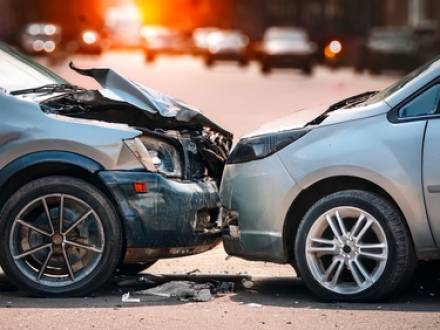Can I Get Paid if I Am Partially At Fault for a Car Accident in Virginia?
 Virginia is one of only a few states that follows the strict contributory negligence rule. If you are accused of being partially at fault for a car accident, this rule makes it significantly harder to recover damages. An experienced Shenandoah Valley, VA car accident lawyer can help you understand your rights, protect you against unfair blame, and give you the best chance of securing compensation.
Virginia is one of only a few states that follows the strict contributory negligence rule. If you are accused of being partially at fault for a car accident, this rule makes it significantly harder to recover damages. An experienced Shenandoah Valley, VA car accident lawyer can help you understand your rights, protect you against unfair blame, and give you the best chance of securing compensation.
Understanding the Contributory Negligence Law in Virginia
Under Virginia’s pure contributory negligence system, if you are found even one percent at fault for causing a crash, you likely will not be able to recover compensation. The law is rooted in Virginia Code §8.01-34, which allows multiple parties to be held responsible when a civil wrong occurs.
However, the way courts apply contributory negligence is unforgiving. Even minor mistakes, such as failing to signal a turn or driving slightly above the speed limit, could be used against you. Because of this, insurance companies often try to argue that an injured person was at least somewhat responsible. If they succeed, the injured party may receive nothing.
How Do You Fight Accusations of Shared Fault After a Virginia Car Accident?
If you have been blamed for part of a crash, you and your attorney can fight back by challenging the evidence and presenting your side of the story. Some common defense strategies include:
-
Showing that the other driver had the last clear chance to avoid the accident
-
Proving that the evidence that was used to blame you, such as witness statements or police reports, is unreliable or incomplete
-
Using accident reconstruction experts to demonstrate how the other driver’s actions were the true cause of the collision
Virginia’s laws give defendants a powerful tool for denying payment, but strong representation allows you to push back.
Proving Negligence in a Virginia Car Accident Case
To recover damages in Virginia, you carry the burden of proving the four elements of negligence:
-
Duty: The driver had a legal responsibility to act safely.
-
Breach: The driver violated that responsibility.
-
Causation: The unsafe action directly caused the accident.
-
Damages: You suffered losses, such as injuries or financial harm.
For example, Virginia Code §46.2-816 prohibits following another vehicle too closely. If a driver tailgates and causes a rear-end collision, that violation can serve as evidence of negligence.
Your attorney may collect medical records, police reports, photos, and witness testimony to support your case. Even if the insurance company insists you were partly to blame, strong evidence can shift liability back to the other driver.
Schedule a Free Consultation With a Winchester, VA Car Accident Attorney
When an accident leaves you injured, facing lost wages, and dealing with medical bills, you cannot risk being denied compensation because of Virginia’s contributory negligence rule.
At Parthemos, Curran, Buelow and Polizzi, PLLC, we provide aggressive, customized representation, and we do not take on cases unless we are fully prepared to fight them out in court. With more than 120 years of combined experience, we have built a reputation for handling even the most complex claims that other firms are not willing to pursue. Over the years, we have secured millions of dollars in awards for clients who suffered losses in motor vehicle accidents.
If you have questions about fault and compensation after a car accident in Virginia, contact our knowledgeable Shenandoah Valley, VA car accident lawyers at 540-662-4222 today to schedule a free consultation.


